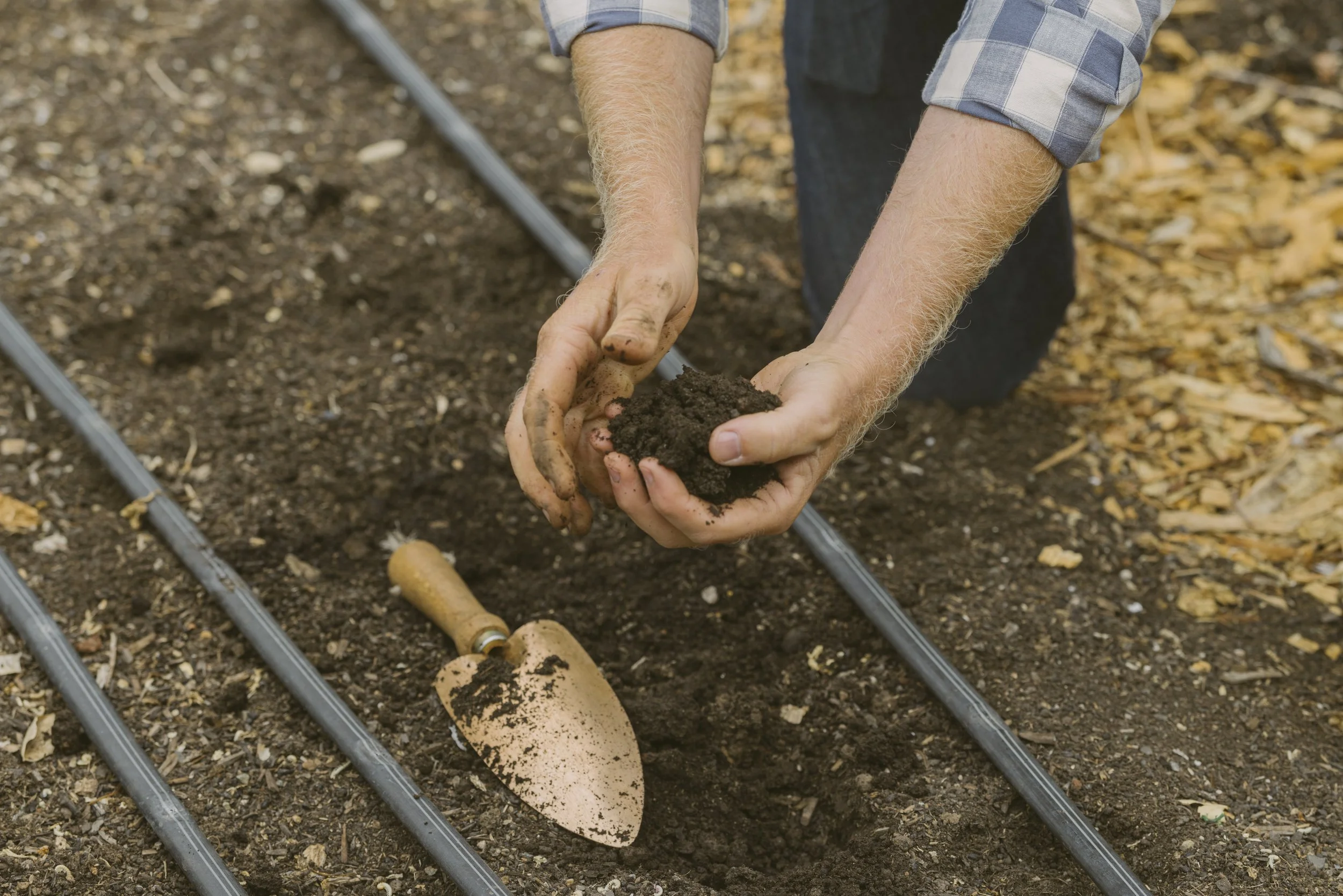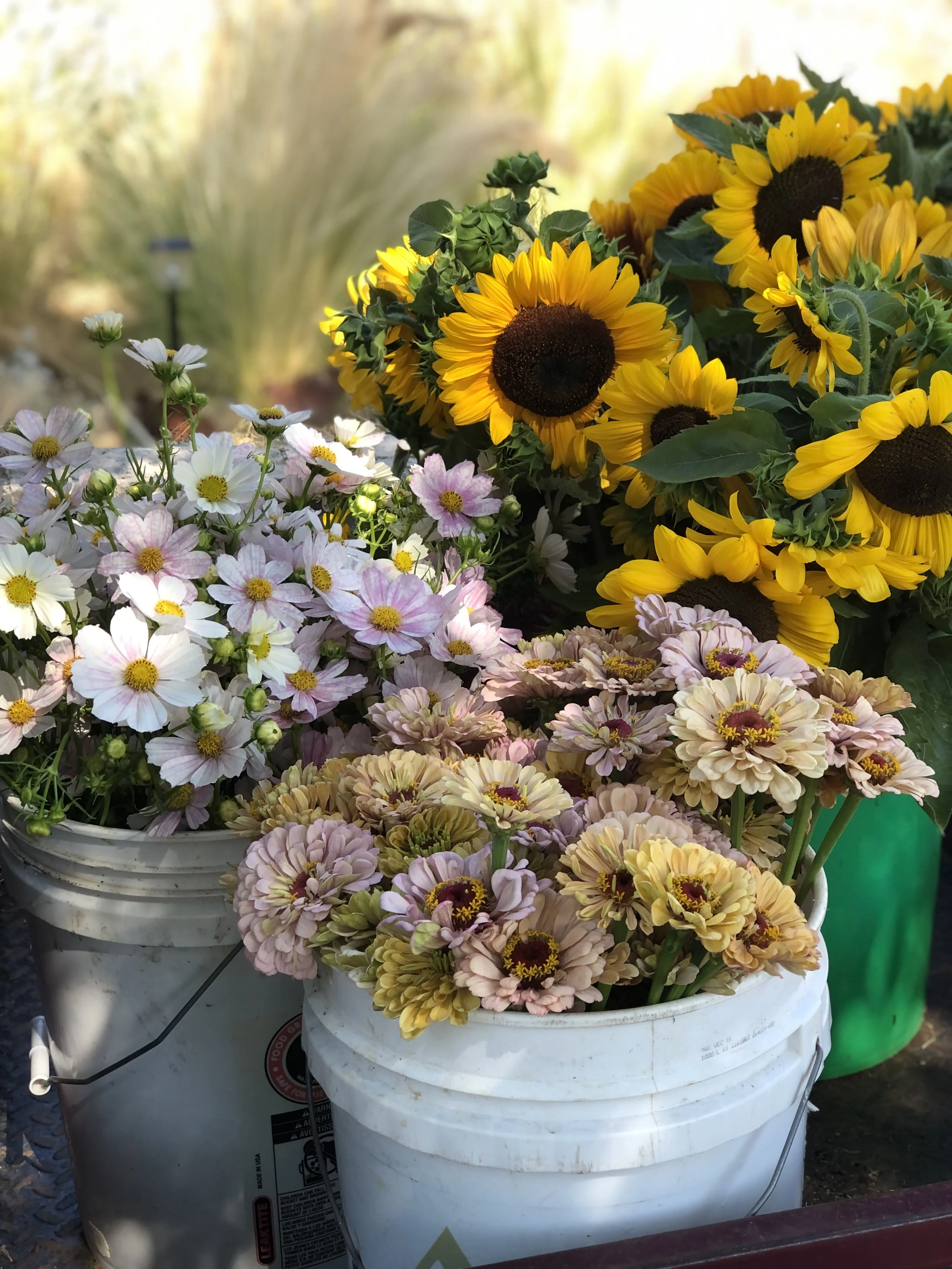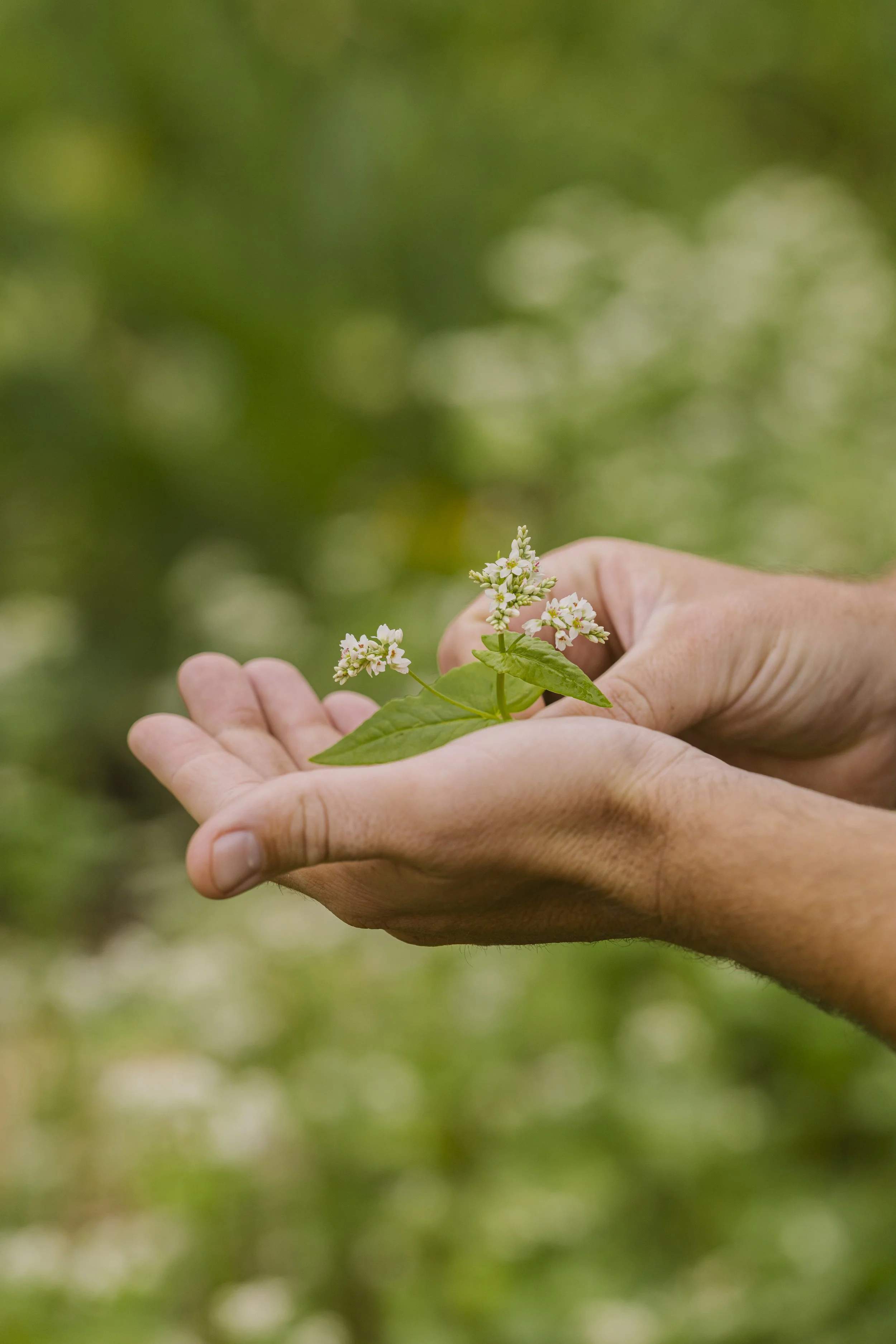A biodynamic no-till farm in Napa Valley, California.
Soil is the most important living being on our farm. Our approach to building soil life is through no-till & biodynamic methods. These methods emphasize disturbing the soil as little as possible and feeding it farm sourced inputs to suppress weeds, build fertility, and improve soil structure. In doing so, the soil life is able to thrive and support the growth of fruits and vegetables for us. We’ve realized once we step back and listen to nature, the garden is capable of providing itself with everything it needs in order to thrive.
What started off as a rock wall project back in 2019 is now a one-acre bio intensive market garden providing food & education for chefs, restaurants, CSA members, students, and guests of the farm.
We grow in accordance with natural cycles, strive to build strong ecology, and teach others who’d like to do the same. Our farm stands as an opportunity to take the first step in reconnecting with nature, to heal one step at a time.
Stewards of the Invisible World
Patrick and Haruna Deasy are the husband & wife team behind Stepping Stone Farm and Rice Flower.
Patrick’s culinary farming background led him to begin Stepping Stone Farm in 2019. The cultivation of his own market garden allowed him to practice and teach regenerative farming through no till methods and biodynamic techniques-both of which honor natural cycles and stewardship of the soil.
Haruna’s love of her native Japanese culture led her back to Osaka in 2019 to learn from and become a Master Koji Maker. Rice Flower is the koji-based Japanese fermented foods company made with Stepping Stone Farm vegetables. All of her koji is fermented small batch and the traditional way using red cedar wood boxes and Japanese organic rice.
Patrick nurtures the invisible microbes underground while Haruna nurtures the invisible microbes within us. This mindful cross pollination honors the connection between nature, soil, gut, and spirit.
Biodynamic Principles
Many growers are trialing and experimenting with new and exciting farming methods making regenerative agriculture hard to define. There is no one way to do it, which makes it even more appealing. Often times farmers look for the holy grail when it comes to growing methods or standard operating procedures, but with biodynamic farming natural cycles are key. Biodynamics is an approach to growing with reverence to the life and celestial forces within and around us. Specific preparations are made that are applied to crops, beds, and soil to aid in the growth, health, and vitality of the entire ecosystem. Biodynamic farming regenerates the broken cycles and allow nature to do what she does best. By setting our sights on the thriving life in the soil, we are better able to understand its role in farming and our responsibility in stewarding it.
No-Till Methods
No-till is a method of practicing regenerative agriculture. There are important pillars to no-till vegetable cultivation which aid in the creation of soil life, improve its vigor, strengthen its health, and reenforce its resiliency. All of which translates directly to plant health. No-till farming or gardening means quite literally to farm or garden without tilling the soil - keeping the native soil structure undisturbed and in tact as much as possible. In doing so, soil texture and tilth improves, water retention increases, fertility strengthens, leaching and erosion is limited, and weeding is a thing of the past. The creation and subsequent cultivation of vegetables beds rely on an organic compost mulching system. Laying organic, good quality compost on top of beds to plant directly into creates the conditions necessary for strong roots. Organic mulches for pathways, borders, and beds feed the soil life so they are able to do the heavy lifting for us.












